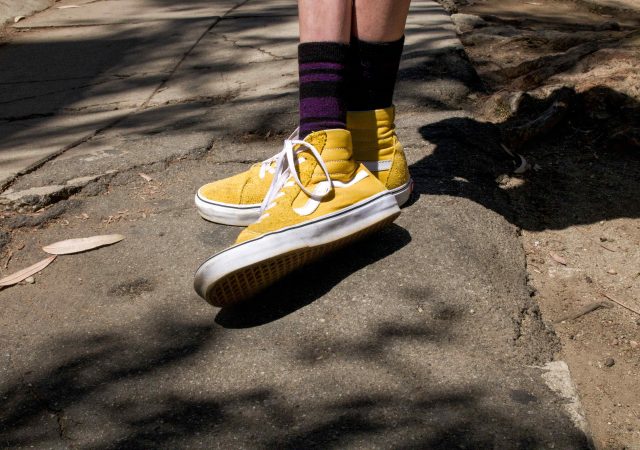I didn’t want to be human anymore.
Print Content
Cringe Compilation #42: The Psychology of Cringe Culture
If you’re queer, someone else in the world cringes at your identity in the same way you do at furries; you could just as easily end up on “LGBTQ+ Cringe Compilation #32” as soon as someone decides your identity is cringeworthy, so why wait? Pick up that hobby you thought was embarrassing, and show it to your friends.
For the Love of Furries
When you think of furries, what comes to mind? Fursuits? Furry porn? People with cat ears being walked on leashes? Comparatively, when you think of us queers, what comes to mind?
A Trip in Westwood
UCLA made me disabled.
Don’t get me wrong, I’ve been ill my whole life. I was diagnosed with Marfan Syndrome at 18 months old, a rare genetic disorder that makes my connective tissue more elastic and prone to spontaneous breakage. I hear from every medical professional I see that I am a textbook marfanoid; there was even a photo of 6-year-old me on The Marfan Foundation’s “Signs & Symptoms” page for a decade. I am a literal poster child for my condition.
Why Pride This Year?
Picture this: it’s June 28, 1970, nearly a year after the monumental Stonewall riots, and you’re attending the first Pride Parade in New York City. Except it’s not a parade, and it’s not entirely about Pride: it’s the Christopher Street Liberation Day March. Here, we recognize the familiar names of Marsha P. Johnson, Sylvia Rivera, Miss Major Griffin-Gracy, and the lesser known names of the march’s organizers Craig Rodwell, Fred Sargeant, Ellen Broidy, Linda Rhodes, Brenda Howard and many more. Unlike today’s Pride Parade, this march in New York was dedicated to Gay Liberation in the forms of political speeches, demonstrations, and gay visibility.
to live, not just to survive: the queer indomitable spirit
Queerness is often about survival. While Torres is alluding to a space free from discrimination and violence, with the ongoing COVID-19 pandemic, queer survival is being threatened even more. As much as we want to create a “safe space,” there is no true safe space as long as people are dying and becoming disabled from COVID-19. COVID-19 is being swept under the rug by our government despite clear evidence that repeat infections can leave lasting damage in almost every organ in the body.7 Currently, there is also a resurgence of anti-LGBTQIA+, anti-Black, anti-immigrant, and anti-free speech rhetoric and legislation. When queer people are denied the chance to exist, we must find a way to live. By critically examining our past, we can shed light on the present.
in pursuit of peace
I was eight when my shape started to shift from straight lines to soft curves, and discomfort began festering inside of me. My discomfort mutated into disgust with each second I spent in an increasingly foreign body. I was eight when a man leaned out of his truck to whistle at me for the first time, and I learned my body exists for the world to look at, and they will look at it and think what they’ll think of it regardless of how I feel about it. I was eight when my body became my enemy.
Our Final Farewell: Generate Inspiration
You step into the first meeting of Student Media’s queerest magazine, OutWrite. It is one of UCLA’s hidden gems, where people can truly be themselves. You applied as a writer on a whim. This was the first queer organization you were involved with during your college career. Seeing other people enjoy their time at OutWrite (and finding you do, too), you stay in the organization for the remainder of your academic years. You drift from being a staff writer to becoming a Developmental Editor and even a co-host of “Speak Out,” OutWrite’s very own podcast, each role challenging your creativity. Here, you are allowed to flourish, trying different techniques to hone your craft.
Recognized Amongst Nature
here
a wretched body becomes comfortable turmoil
untangles
from within a forsaken shell
The forest won’t judge flesh
blood and bone
a family of limbs
PHOTOSYNTHESIS
It is a beautiful thing, wanting nothing at all from someone you love because you live with mutual understanding beyond the primal need for physical touch, found in fleeting evenings doomed to end with someone closing the door without looking back. It is a beautiful thing, telling them that you love them over the phone while you’re crying your eyes out because you don’t know what to do now; then you’re laughing until there’s a moment you allow yourself to forget. I remember life before my queer friends, how it felt begging for someone I could see myself in just enough to spark a casual conversation built on genuine interest instead of twisting those unwilling into sharing hyperfixations created for those of us who know what it’s like to have to fight for the ones you love.













